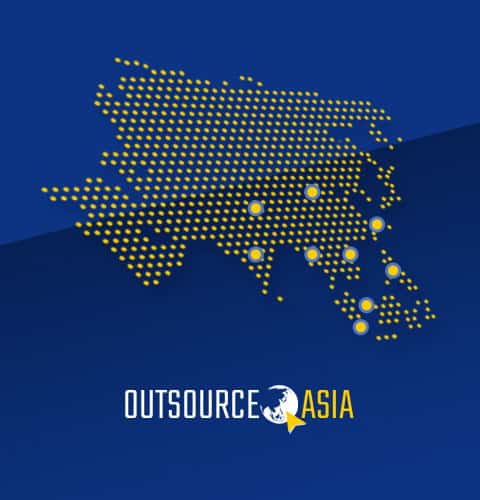
Choosing the Right Outsourcing Partner in Asia: A Comprehensive Guide
Globally, Asia has emerged as a prominent outsourcing destination for business functions. This region offers cost-effective solutions, a skilled workforce, and access to vast markets. However, choosing the right outsourcing partner in Asia requires strategic thinking and careful consideration. The purpose of this article is to provide you with a comprehensive guide on how to choose the ideal outsourcing partner in Asia, ensuring a successful and fruitful partnership.
Finding the right partner in the Asia-Pacific region is a highly intricate matter, and there isn’t a one-size-fits-all solution. To begin with, it’s crucial to address some fundamental questions:
- What are your objectives in offshoring? Are you aiming for cost savings, market access in Asia, proximity to Asian customers, access to Asian talent pools, or other reasons?
- What specific aspects of your business do you want to offshore? Are you considering offshoring R&D, manufacturing, regulatory tasks, finance support, IT, or other functions? If it’s R&D, what specific area, such as clinical R&D, medicinal chemistry, or chemical and pharmaceutical development?
- What level of risk are you willing to tolerate? Do intellectual property concerns arise? Are there operational or investment risks involved?
- In the case of offshoring investments, are you focused on short-term returns or considering long-term benefits?
Addressing these questions is an initial step as they will help guide your decision-making process. For instance, if you’re involved in chemical and pharmaceutical development, India may be a preferred destination due to factors like the availability of GMP facilities (both R&D and manufacturing) and their experience in full product development. On the other hand, if you require manufacturing of an API based on fermentation, China may be attractive due to its extensive experience and minimal power interruptions. For back-office support, Singapore could be a suitable choice, particularly for expatriates. Additionally, it’s worth noting that proximity to customers is more critical for manufacturing or R&D activities than for back-office work. These examples are not definitive but rather illustrative of preferences in certain scenarios.
Once you’ve determined the country, selecting the specific location becomes crucial. Considerations such as proximity to governmental offices, logistics infrastructure, airport accessibility, time differences, and the likelihood of electrical power interruptions are all factors to evaluate. Labor costs can also vary significantly between major hubs like Shanghai and Mumbai compared to tier 2 or 3 locations. Language-based communication should also be taken into account, especially when operating in China.
If you prefer not to invest directly in an offshoring location, thoroughly vetting potential Asian CROs/CMOs is essential. Key factors to assess include their experience in dealing with Western companies, GMP compliance, their tenure in the relevant business area, whether part of their management has Western training, the condition of their facilities, and the availability of tax incentives in certain zones or industrial parks.
Identifying the right partner depends on various aspects, making it a crucial decision with significant implications. It is advisable to collaborate with a local professional representative in Asia who possesses knowledge of the landscape, culture, language, and the pharmaceutical industry. Alternatively, seeking advice from a Western expert experienced in pharmaceuticals and Asian markets can also be beneficial.
While concerns about counterfeit APIs in Asia exist within the industry, it is worth noting that approximately 80% of worldwide API supplies come from India and China, demonstrating the capabilities and reliability of these countries. However, caution should be exercised when dealing with generic drug products, particularly those manufactured illegally if the API is still subject to intellectual property laws. In China, a majority of locally sold medications are still generics.
Dealing with partners in long-distance locations requires an understanding that what works in North America or Western Europe may not necessarily work in Asia, and what works in one Asian country may not work in another. This applies not only to work-related matters but also to cross-cultural behavior. Asian partners often exhibit a determined “can do” mentality, ambition, and eagerness to learn, which can be impressive. However, it’s essential to be aware of potential challenges, such as underestimating the complexity of problems or project timelines. Collaboration with partners unfamiliar with working with Western companies.
If you’ve taken all these factors into account and you have decided that outsourcing to Asia is definitely for you, here’s how to get it done right.
Choosing the Right Outsourcing Partner in Asia: A Step-By-Step Guide
1. Determine Your Business Requirements
It is crucial to clearly define your business requirements before searching for an outsourcing partner. Determine what specific functions you wish to outsource, such as IT services, customer support, finance, or manufacturing. Establish a solid foundation for choosing the right partner by assessing your goals, budget, and timeline.
2. Assess Country-specific Factors
In Asia, there are a variety of countries, each with its own advantages and considerations. Assess factors such as language proficiency, cultural compatibility, political stability, legal frameworks, and intellectual property protection when researching outsourcing destinations. Outsourcing capabilities are renowned in countries such as India, China, the Philippines, Vietnam, or Malaysia.
3. Evaluate Expertise and Industry Experience
Assess the expertise and experience of potential partners. Find a partner who has a proven track record of delivering services similar to yours. Learn about their capabilities and achievements by reviewing their portfolio, client testimonials, and case studies. It is possible to add value to your business and provide effective solutions with the help of a partner with relevant experience.
4. Quality and Infrastructure
Make sure your potential outsourcing partner maintains high-quality standards and has a robust infrastructure. Assess their technological capabilities, security measures, data privacy protocols, and disaster recovery plans. It is possible to ensure reliable and secure operations with a partner who has state-of-the-art infrastructure and certifications such as ISO or CMMI.
5. Scalability and Flexibility
You should consider the scalability and flexibility of your potential outsourcing partner. Make sure they can accommodate your business’s evolving needs and handle fluctuating workloads. Your growth trajectory can be supported by a partner with scalable resources and a flexible engagement model.
6. Communication and Language Proficiency
Collaboration requires effective communication. Ensure that your potential partner’s workforce is proficient in English, which is widely used for business communication. Communication skills can minimize misunderstandings, facilitate seamless collaboration, and ensure a smooth project execution.
7. Cost-effectiveness
It is essential to evaluate the cost-effectiveness of outsourcing partners, even if cost is not the only determinant. Different vendors offer different pricing models, service levels, and cost structures. Consider factors such as labor costs, infrastructure expenses, and taxation policies in your target countries. Maximize the value of your outsourcing investment by finding a balance between quality and cost-effectiveness.
8. Contractual Terms and Service Level Agreements
Before finalizing an outsourcing partnership, review contractual terms, service level agreements (SLAs), and legal aspects carefully. You should ensure that the terms meet your expectations, including deliverables, performance metrics, timelines, confidentiality agreements, and dispute resolution mechanisms. Make sure your contract is comprehensive and mutually beneficial by seeking legal advice.
Conclusion:
Your business operations and success can be significantly affected by choosing the right outsourcing partner in Asia. With the comprehensive guide outlined above, you can make an informed choice that aligns with your business requirements, industry expertise, scalability requirements, and budget. Make sure to conduct thorough research, assess potential partners based on relevant criteria, and ensure effective communication and a strong contractual framework. You can take advantage of the numerous benefits and opportunities Asia has to offer by partnering with the right outsourcing company.
In order to remain competitive, businesses must keep up with the fast-paced outsourcing industry. Your business will be affected by these trends both now and in the future.
What criteria do you employ to choose the perfect outsourcing partner? If you need help in finding the right outsourcing partner, book a FREE APPOINTMENT with Outsource Asia experts today.


